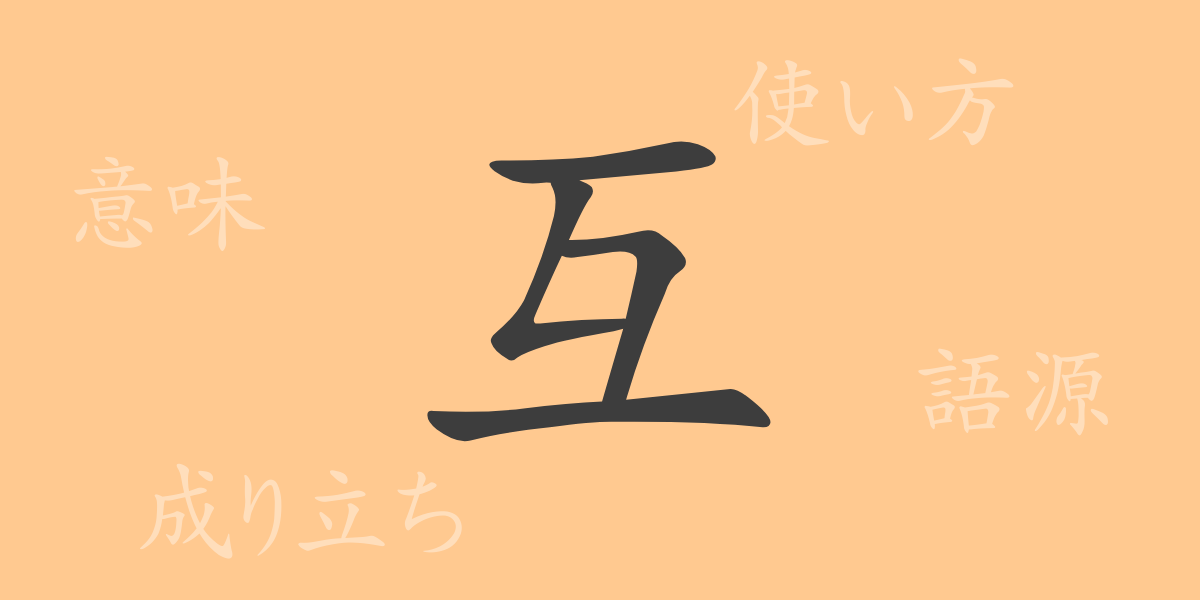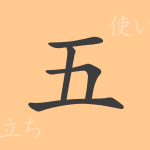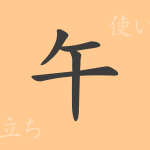The richness of the Japanese language is characterized by the deep meanings and diverse expressions brought about by its kanji characters. One such commonly used kanji in everyday life is “互” (ご, たがい). Although frequently encountered, its meanings, origins, and uses are often overlooked. In this article, we will delve into the allure of “互,” exploring its etymology, idioms, and proverbs.
Origins of 互 (Etymology)
The kanji “互” (ご, たがい) can be traced back to ancient Chinese oracle bone script. It depicts two people facing each other, symbolizing mutuality and exchange. This fundamental concept has remained unchanged for over a thousand years, and its spirit continues to be embraced in modern Japanese.
Meanings and Uses of 互
“互” (ご, たがい) is used to signify relationships and interactions between people. It is commonly used in phrases like “互いに” (たがいに) and “お互い” (おたがい), which mean “mutually” or “each other.” It is also widely used to express mutual help and exchange.
Readings, Stroke Count, and Radical of 互
The kanji “互” (ご, たがい) has interesting features regarding its readings and structure.
- Readings: On’yomi (音読み) is “ご” (ご), and Kun’yomi (訓読み) is “たが.い” (たがい).
- Stroke count: It has a total of 4 strokes.
- Radical: The radical is 二点しんにょう (にてんしんにょう).
Idioms, Phrases, and Proverbs Using 互
There are many idioms, phrases, and proverbs in Japanese that include “互” (ご, たがい). For instance, “互換性” (ごかんせい) refers to the compatibility between different systems or devices, and “互恵” (ごけい) means mutual benefit. The proverb “互いの傷を舐め合う” (たがいのきずをなめあう) describes the act of consoling each other when in similar difficult situations.
Summary of 互
Each kanji character has been shaped through history and culture, reflecting its forms and meanings. “互” (ご, たがい) symbolizes mutual interactions and relationships between people, continuing to influence our language deeply. From everyday conversations to business contexts, the presence of “互” (ご, たがい) highlights the richness of Japanese expressions.

























